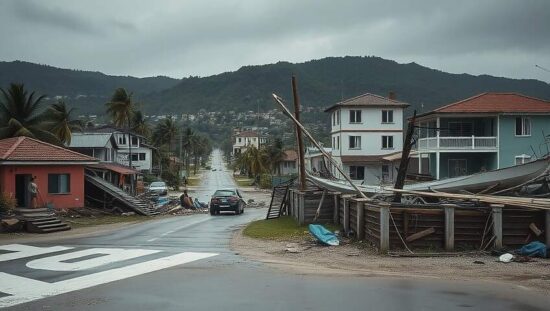Berlin – While initial reports indicated widespread devastation across the Caribbean following Hurricane “Melissa” the German government has confirmed no German citizens are currently known to be among the casualties or injured. A spokesperson for the Foreign Ministry in Berlin stated on Friday that, as of now, there is no information suggesting German nationals have been affected, though the situation remains fluid and assessments are ongoing.
The confirmation comes as Jamaica has formally issued an international appeal for assistance, outlining anticipated needs for relief goods. The German government, through its Federal Agency for Technical Relief (THW), is currently compiling potential offers of aid. However, officials cautioned that these offers must be accepted with a high degree of specificity, contingent on a concrete response and detailed requirements from the Jamaican government. Similar requests for international assistance have been received from the Bahamas and Berlin is presently reviewing the needs.
Hurricane “Melissa” widely described by meteorological experts as a “storm of the century” made landfall on Jamaica on Tuesday afternoon (local time) as a Category 5 hurricane, unleashing devastating power which impacted the island state with unprecedented force. The storm’s intensity was underscored by an exceptionally low atmospheric pressure of just 892 millibars – a reading lower than that recorded during Hurricane Katrina in 2005. This exceptionally low pressure contributed to dramatically intensified winds, with sustained speeds within the storm’s eye reaching up to 300 kilometers per hour.
Official reports indicate at least 19 fatalities in Jamaica, with a further 30 deaths reported from Haiti. One death has also been confirmed in the Dominican Republic. Authorities fear the death toll will continue to rise substantially as recovery efforts progress and communication is re-established across affected regions. Cuba, where over 700,000 residents were evacuated, initially reported no fatalities.
The German government’s cautious approach to aid deployment, emphasizing the need for precise and actionable requests, reflects a broader ongoing debate regarding the efficiency and effectiveness of international disaster relief efforts. Critics often point to logistical hurdles and bureaucratic delays that can hinder the timely delivery of essential supplies. The situation highlights not only the immediate humanitarian crisis but also the complex political landscape that governs responses to natural disasters of this magnitude, particularly in the context of already vulnerable island nations.





